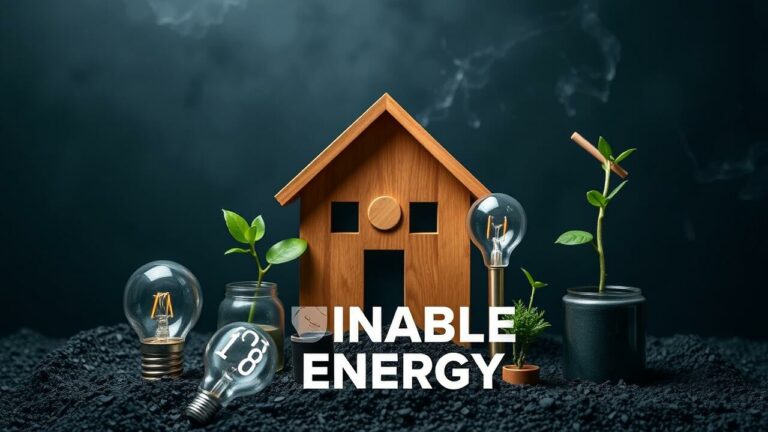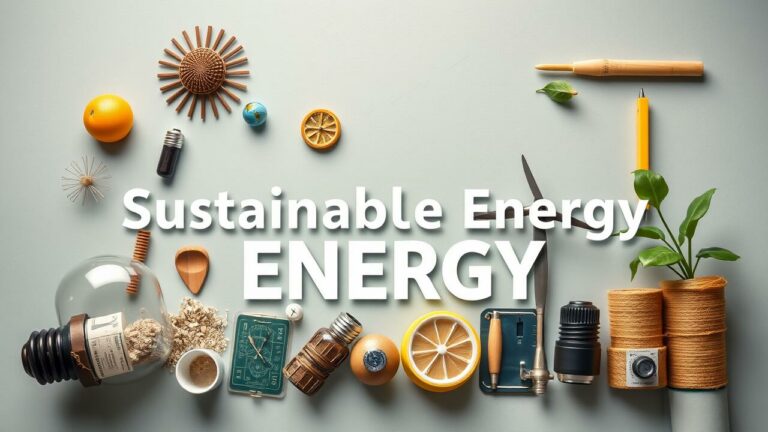Petrochemical Production
The petrochemical industry—an intricate web of innovation and necessity—stands as a linchpin in the supply chain, delivering essential raw materials that fuel diverse sectors like plastics, pharmaceuticals, and agriculture. Picture this: natural gas and crude oil morphing into fundamental chemicals through an alchemical dance of science; it’s a transformation where hydrocarbons undergo metamorphosis via methods like steam cracking and catalytic reforming. The outcome? A cornucopia of derivatives such as ethylene, propylene, and benzene—each one bursting with potential applications across myriad fields.
Yet, amidst this bustling backdrop of production lies a narrative steeped in technological evolution. Producers are not merely keeping pace; they’re pushing boundaries to maximize yields while sharpening efficiency within their operations. Continuous innovation isn’t just desirable—it’s imperative—to satiate the insatiable global appetite for petrochemical products while grappling with pressing environmental issues tied to these very processes. In response to this dual challenge, the sector is pivoting toward sustainability: embracing alternative feedstocks and adopting greener practices designed to slash carbon footprints. These initiatives don’t just reflect a commitment—they echo an urgent call to harmonize economic aspirations with ecological stewardship in a dynamic market landscape that refuses to stand still.
Role of Refining in Petrochemical Chain
The petroleum refining process stands as an essential bridge, a pivotal transformation that morphs crude oil into a treasure trove of valuable petrochemicals. It’s a dance of breaking down and restructuring hydrocarbon structures—refineries spin out an array of feedstocks that are indispensable for crafting everything from plastics to fertilizers and synthetic fibers. This metamorphosis not only amplifies the utility of raw materials but also supercharges economic potential through the birth of diverse chemical products that fuel countless industries.
Refining is no mere step; it’s a cornerstone, ensuring high-quality inputs flow seamlessly into other chemical processes like lifeblood through veins. The efficiency and effectiveness pulsating within these facilities have profound repercussions on the productivity rhythms of downstream petrochemical operations. And let’s not overlook the leaps in refining techniques—these innovations usher in heightened yields and superior separation of coveted products, all while nudging us closer to a sustainable and economically sound petrochemical realm. The intricate web connecting these processes illuminates just how vital refining is amidst the broader tapestry of chemical manufacturing.
Environmental Considerations
The petroleum refining process, a labyrinth of complexities, presents formidable environmental hurdles that demand urgent attention to mitigate their adverse effects. Picture this: air and water pollution loom large as the twin specters haunting refining operations, with noxious emissions spewing forth from the combustion of fossil fuels and volatile organic compounds escaping into the atmosphere like whispers in a storm. And then there’s the wastewater—an insidious brew of contaminants lurking within refineries, threatening local ecosystems with dire consequences if left unchecked.
Enter regulations and monitoring programs—a vital lifeline enforcing environmental standards as they strive to keep these industrial giants in check, compelling them to reduce their ecological footprint lest we plunge deeper into an environmental abyss.
But amidst this chaotic tapestry lies hope: embracing sustainable practices is not merely an option; it’s imperative for the petroleum industry to reconcile its economic ambitions with a commitment to environmental stewardship. A wave of innovation sweeps through many refining facilities as they pour resources into cutting-edge technologies designed to slash waste and boost energy efficiency. Think carbon capture and storage—the alchemy of modern engineering—as well as smarter distillation processes that work hand-in-hand toward reducing greenhouse gas emissions.
This shift towards cleaner production methods doesn’t just serve Mother Earth; it resonates with global initiatives aimed at combating climate change while steering us toward sustainable development—an intricate dance between progress and preservation that we can no longer afford to ignore.
Managing Waste and Emissions in Refining
In the intricate labyrinth of the petroleum refining industry, managing waste and emissions stands as a pivotal challenge—one that can’t be overlooked. Refineries churn out an array of by-products: think wastewater swirling in vast pools, solid refuse piling high, and air pollutants wafting into the atmosphere during each stage of refining. To combat this environmental conundrum, state-of-the-art treatment systems are put to work, striving to mitigate these detrimental effects. Techniques like flaring away excess gases, scrubbing pollutants from exhaust streams, and capturing vapors breathe new life into efforts aimed at slashing airborne contaminants.
Now more than ever, continuous emission monitoring has become a staple practice—almost second nature—ensuring compliance with stringent regulatory frameworks that govern industrial operations. But wait! The narrative doesn’t end there; enter the surge of green technologies making waves across refineries! These innovations champion waste reduction while simultaneously enhancing resource recovery—a veritable win-win scenario.
With many refineries re-engineering their workflows to reclaim materials and recycle precious water supplies, dependence on outside water sources is dwindling. And let’s not forget about carbon capture and storage (CCS), which is rapidly gaining traction as a vital strategy for curbing those pesky greenhouse gas emissions. Such forward-thinking initiatives don’t merely serve an ecological purpose; they carve pathways toward sustainable refinery practices that harmonize industrial progress with our planet’s well-being—a delicate balance indeed!
Advances in Refining Technology
Recent strides in refining technology have sparked a remarkable surge in operational efficiency and product yield, transforming the landscape of the industry. Picture this: computerized process controls and sophisticated catalytic systems dancing together to fine-tune chemical reactions—resulting in purity levels that shimmer like never before! With real-time monitoring systems stepping into the spotlight, refineries can make instantaneous adjustments on-the-fly, slashing downtime and keeping energy consumption at bay. These innovations don’t just polish up petroleum products; they also pave the way for a more sustainable future.
But wait, there’s more! Enter emerging technologies such as artificial intelligence and machine learning—the game-changers making their presence felt in refining operations. Imagine predictive maintenance swooping in to flag potential equipment failures well before they strike. By harnessing vast oceans of data, refineries are optimizing processes with finesse, trimming waste down to size while bolstering safety measures across the board. This embrace of groundbreaking solutions not only showcases an unwavering commitment to progress but also underscores how agilely the industry responds to ever-shifting market demands.
Innovations Shaping the Future of Refining
The refining industry is undergoing a seismic shift, bursting with transformative innovations that are not just whispers of change but roaring advancements aimed at ramping up efficiency and sustainability. Imagine this: advanced data analytics coupled with sharp machine learning algorithms weaving through the fabric of operations, predicting equipment failures before they happen and fine-tuning maintenance schedules like clockwork. This tech wizardry isn’t merely about reducing downtime; it’s turbocharging productivity to levels previously thought unattainable.
But wait—there’s more! The infusion of artificial intelligence into process control systems is revolutionizing how refineries react in real time, adjusting on-the-fly based on the ever-shifting tides of market demands and resource availability. It’s akin to having a crystal ball for refining margins—sharp insights leading to sharper profits.
And let’s not overlook the cutting-edge catalytic processes emerging from the shadows—designed to boost product yields while slashing energy consumption. Techniques like hydrocracking and selective catalytic reduction are now at the forefront, crafting cleaner fuels while deftly curbing greenhouse gas emissions. Plus, there’s an exciting wave of innovation rolling in with renewable feedstocks that promise to diversify input sources; it’s all about syncing up with global sustainability aspirations.
These powerful developments underscore an unwavering commitment within the industry—not just adapting but thriving amidst environmental challenges and evolving consumer desires—all while steadfastly securing its pivotal position in the sprawling landscape of global energy.
| Innovation | Description | Impact |
|---|---|---|
| Advanced Data Analytics | Utilizes big data analysis and machine learning to predict equipment failures and optimize maintenance scheduling. | Reduces downtime, increases productivity, and enhances operational efficiency. |
| Artificial Intelligence | Integrates AI into process control systems for real-time adjustments based on market demand and resource availability. | Improves responsiveness to market changes, leading to increased profits and refined margins. |
| Innovative Catalytic Processes | Employs advanced techniques like hydrocracking and selective catalytic reduction to enhance product yields. | Decreases energy consumption and lowers greenhouse gas emissions, contributing to cleaner fuel production. |
| Renewable Feedstocks | Explores the use of varied renewable inputs to align with sustainability goals. | Diversifies input sources and supports the transition to a more sustainable energy landscape. |
Economic Impact of Refining
The petroleum refining industry—oh, what a pivotal player in the grand theater of the global economy! It doesn’t just churn out revenue by the billions but also provides livelihoods for millions across the planet. Picture this: refineries transforming crude oil into an array of invaluable products like gasoline, diesel, jet fuel—each drop essential for transportation and manufacturing alike. These outputs are not mere commodities; they’re lifebloods coursing through various sectors that propel economic growth forward.
But wait, there’s more! The ripple effects of refining extend far beyond direct jobs and monetary gains. They bolster energy security and stability, empowering nations to deftly juggle their energy demands with finesse. And let’s not overlook those financial rivers flowing from refined products—a treasure trove of tax revenues trickling down to local and federal coffers alike. This influx doesn’t just sit idly; it fuels critical infrastructure projects and public services galore! Such is the intricate web woven by the refining sector—it underscores its deep-rooted connection to our collective economic wellbeing in ways both profound and multifaceted.
Contribution of Refining to the Global Economy
Petroleum refining stands as a cornerstone of the global economy, intricately weaving crude oil into vital fuels and myriad products that underpin countless sectors. These refined outputs aren’t just mere commodities; they are lifelines for transportation, manufacturing, and energy production—each one playing an indispensable role in driving economic growth forward with relentless momentum.
The refining industry isn’t merely about the transformation of resources; it’s a job creator par excellence, injecting vitality into local economies while funneling revenue to governments through taxes and royalties. Its influence ripples outward—enhancing infrastructure development and nurturing ancillary businesses that thrive in its wake, thereby igniting further waves of economic activity.
But wait! There’s more to this intricate tapestry: the refining sector also forms a crucial player in international trade dynamics. Refined petroleum products rank among the globe’s most traded commodities—a veritable treasure trove for nations equipped with advanced refining capabilities, which often find themselves exporting vast quantities of fuels and petrochemicals. This not only strengthens their trade balances but also weaves them deeper into the fabric of global supply chains.
Thus, the impact extends far beyond immediate financial gains—it shapes energy security while fueling sustainability initiatives across borders. In essence, the refining industry’s contributions resonate throughout modern economies like an echo reverberating through time itself.
- Enhanced energy security by diversifying fuel sources
- Creation of job opportunities in various sectors
- Contribution to infrastructure development in refining regions
- Stimulation of ancillary businesses, such as equipment manufacturing and transportation
- Strengthening of international trade balances through exports
- Support for global supply chain efficiencies
- Facilitation of advancements in sustainable refining technologies and practices
Safety Protocols in Refineries
Refineries find themselves entrenched in a labyrinth of high-stakes risks, an unpredictable dance dictated by the volatile whims of petroleum and its myriad byproducts. Crafting robust safety protocols isn’t just advisable; it’s absolutely crucial for diffusing potential disasters lurking around every corner. These protocols often weave together a tapestry of regular safety training sessions, ensuring that personnel aren’t just familiar with emergency procedures but are practically second nature to them—knowledge is power when it comes to navigating the treacherous waters of hazardous material handling.
But wait! There’s more. The art of preemptive risk management also involves meticulous routine audits and inspections, like vigilant sentinels on guard against unseen threats, catching potential dangers before they spiral into chaos.
Now let’s pivot to another pivotal element: the integration of cutting-edge safety technologies. Imagine automated monitoring systems acting as ever-watchful eyes, capable of spotting leaks or anomalies instantaneously—this real-time vigilance allows for rapid intervention that can mean the difference between minor hiccups and major calamities. And let’s not forget about personal protective equipment (PPE); it’s non-negotiable for every worker—a critical bulwark shielding them from toxic exposures that could otherwise turn dire.
In this intricate ecosystem, cultivating a culture steeped in safety becomes paramount. Encouraging candid conversations surrounding risks and incidents fosters an environment where everyone feels empowered to voice concerns—because in refineries, maintaining this secure atmosphere isn’t merely ideal; it’s imperative for safeguarding every individual who walks through those gates.
Ensuring Safety in Petroleum Processing Operations
In the world of petroleum refining, safety isn’t just a priority—it’s an absolute necessity. The materials and processes involved are fraught with danger, demanding meticulous attention to detail at every turn. Refineries roll out stringent safety protocols that cover everything from employee training and equipment upkeep to regular audits that scrutinize safety measures.
Workers dive into comprehensive training programs focused on emergency response tactics, chemical handling intricacies, and the nuances of operating complex machinery—all designed to slash risks at their roots. Meanwhile, cutting-edge monitoring systems stand vigilant, continuously scanning for potential hazards in real time; when threats emerge, swift corrective actions can be initiated without delay.
Moreover, adherence to regulatory standards imposed by agencies like the Occupational Safety and Health Administration (OSHA) and the Environmental Protection Agency (EPA) is utterly essential in cultivating a safe workplace atmosphere. By embracing robust safety management systems, these operations foster a culture where employees feel empowered—encouraged even—to report unsafe conditions or practices without fear of backlash. This proactive approach ensures that safety isn’t merely an afterthought but woven into the very fabric of daily operations; it shields workers while simultaneously minimizing environmental risks lurking behind refinery accidents waiting to happen.
Conclusion
The petroleum refining process—oh, what a pivotal player in the grand tapestry of our modern energy scene! Here it stands, transforming crude oil into an array of essential products that fuel our lives. But wait! Its importance stretches far beyond just fuels and lubricants; this intricate machinery churns out a plethora of petrochemicals vital for manufacturing across countless industries. With global energy demands shifting like sand underfoot, the refining sector finds itself at a crossroads, ready to pivot and adapt by harnessing cutting-edge technologies and innovations that promise efficiency while striving to lessen their environmental footprint.
But hold on—environmental concerns are no longer whispers in the wind; they’ve grown into urgent calls for sustainable practices within this industry. The stakes are high! Effective waste management and strategies to cut down emissions have become crucial lifelines for shrinking the ecological impact of refining operations. As we navigate these changes, let’s not forget: safety protocols must remain front and center, safeguarding both workers’ well-being and the health of surrounding communities alike. So where does this all lead? The future of petroleum refining dances on the delicate balance between economic viability and responsible stewardship over environmental integrity and safety standards—a balancing act paving the way toward a resilient, sustainable energy horizon waiting just beyond today’s challenges!






